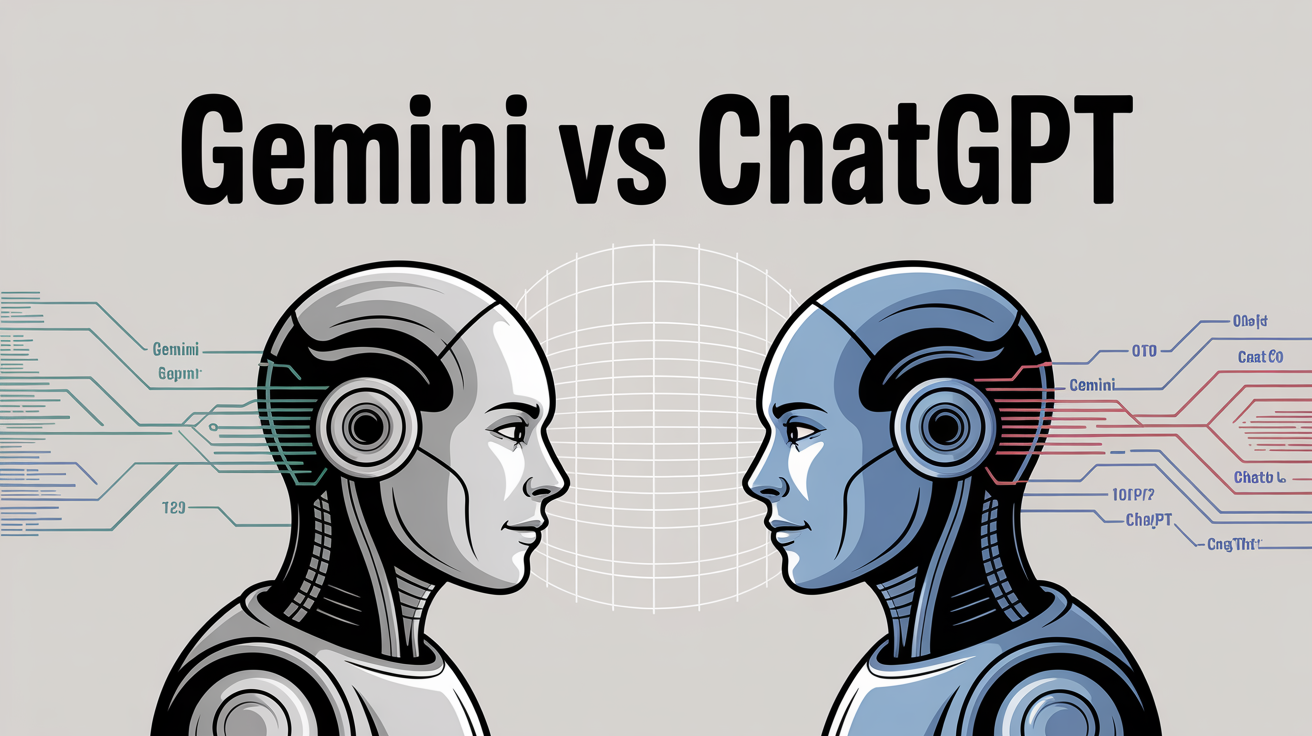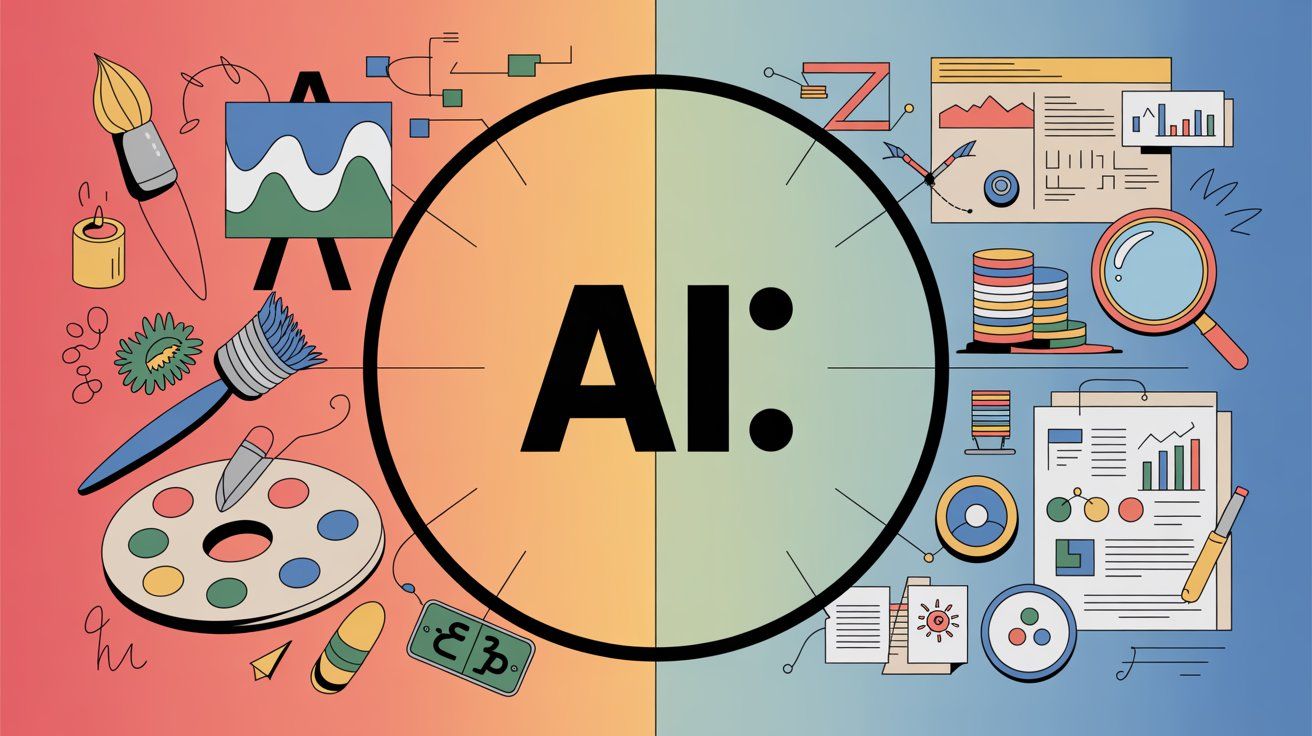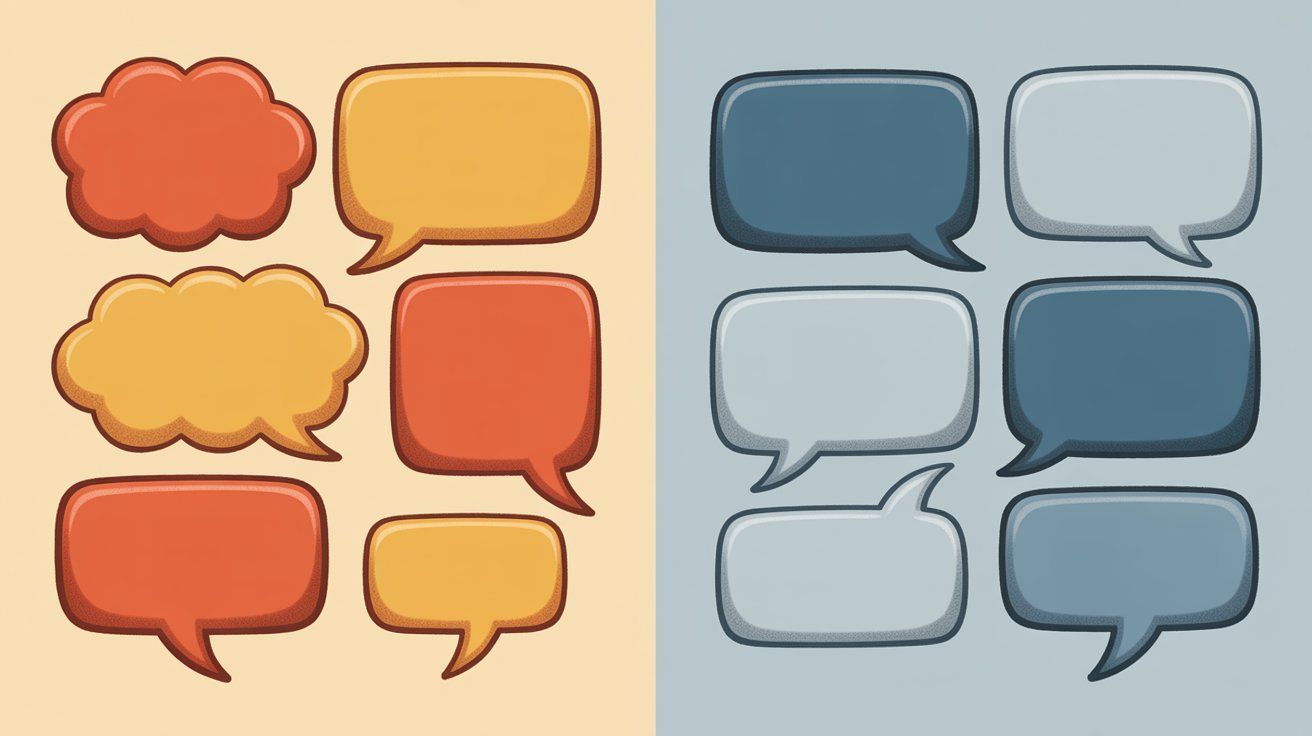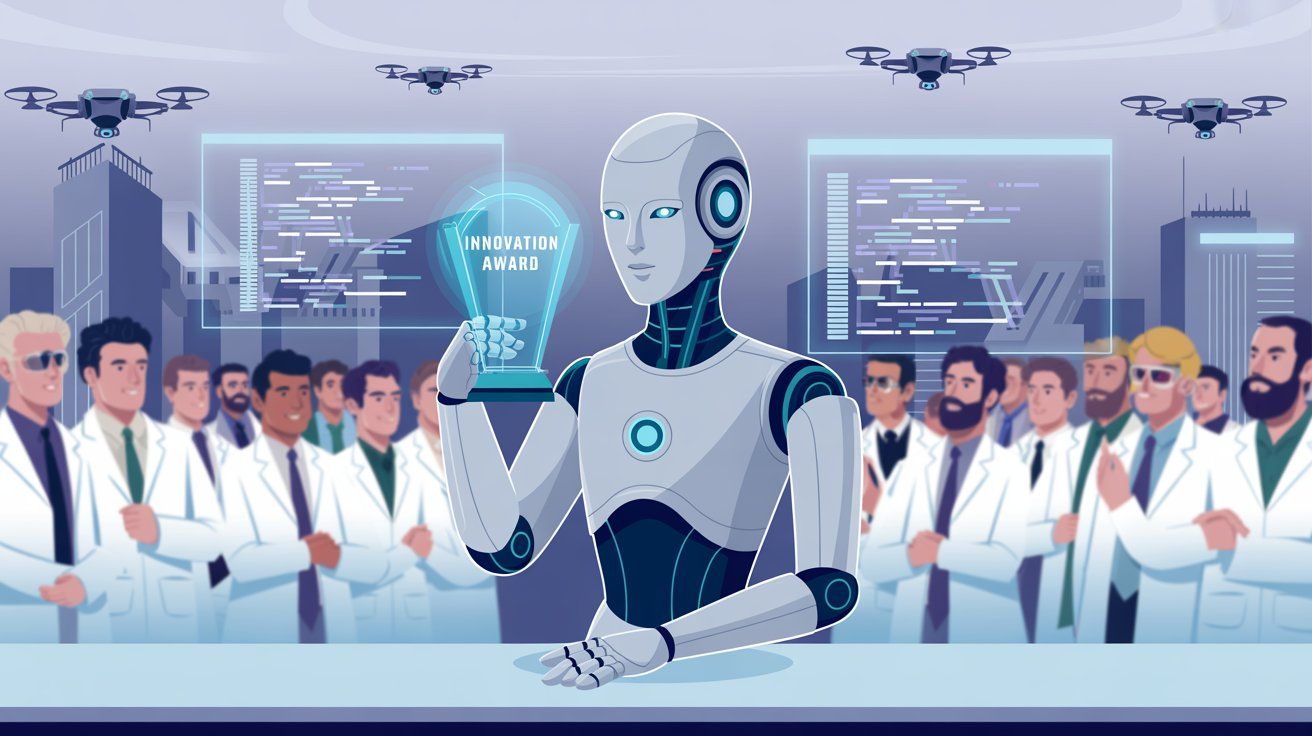
Gemini vs ChatGPT: Which AI is better in 2025?
Discuss with AI
Get instant insights and ask questions about this topic with AI assistants.
💡 Pro tip: All options include context about this blog post. Feel free to modify the prompt to ask more specific questions!
The AI assistant landscape has become a two-horse race between Google's Gemini and OpenAI's ChatGPT. Both can write emails, analyze documents, generate images, and even create short videos.
The real difference? One excels at creative tasks and coding, while the other dominates research and data analysis.
If you're choosing AI tools for customer support, content creation, or business automation, understanding these differences could save you hours of frustration.
And actually, you don't have to pick sides.
We at Spur integrate both AI models, letting you use ChatGPT for creative customer responses and Gemini for data-heavy research tasks without switching between different tools.
The AI battleground isn't about features anymore. It's about which assistant fits your actual workflow.

ChatGPT didn't just launch in 2022. It absolutely exploded.
Within two months, it reached 100 million users, becoming the fastest-growing consumer app ever.
OpenAI kept pushing:
→ GPT-4 arrived in March 2023
→ GPT-5 launched in August 2025 (with reasoning capabilities that made earlier versions look primitive)
Today? ChatGPT dominates with roughly 60% of AI chatbot users. We're talking about 400 million weekly users.
That's massive reach.
Google wasn't sitting idle.
Gemini launched in December 2023, built from the ground up as a multimodal AI by DeepMind. Unlike ChatGPT's evolution from text-only to multimedia, Gemini was designed to handle images, audio, and video from day one.
Google's real advantage? Integration depth.
Gemini isn't just another chatbot. It's woven into:
• Gmail
• Google Docs
• Android phones
• Chrome browser
If you use Google Workspace daily, Gemini feels less like a separate tool. It's more like a supercharged version of your existing workflow.
By 2025, Gemini 2.5 holds about 13-15% of the AI market. Smaller than ChatGPT's dominance? Yes. But Google's ecosystem reach makes it incredibly convenient for millions of users.
Both models can handle similar tasks. But their approaches and strengths? Completely different.
Aspect | ChatGPT | Gemini |
|---|---|---|
Tone | Warm, conversational | Professional, factual |
Response Style | Engaging, detailed | Concise, matter-of-fact |
Personality | Friendly colleague | Analytical expert |
ChatGPT conversations feel like talking to a knowledgeable friend who happens to know everything. Early GPT-5 versions sounded sterile, but OpenAI tweaked it to be warmer and friendlier.
Gemini? Different story.
It provides accurate information with less conversational flair. Some users prefer this professional, corporate tone for business tasks. Others find it slightly cold.
For customer support:
If you want your AI assistant to sound friendly and engaging in customer chats, ChatGPT typically wins. For internal data analysis where you need straight answers, Gemini's directness works better.

Both AIs can access current information, but their methods differ significantly.
ChatGPT uses a unified tool system that automatically decides when to search the web. It browses via Bing. Can perform deep research. Even generates comprehensive reports.
Gemini was built with Google Search integration from day one. Its real-time research mode excels at digging up facts and sources, using Google's superior search capabilities.
Winner: Slight edge to Gemini for research-heavy tasks, especially when you need the latest data or comprehensive fact-checking.
ChatGPT has earned its reputation as the developer's AI assistant.
GPT-4 was already one of the best AI coders. GPT-5? It's taken coding prowess up another notch.
It can generate entire front-end apps with one prompt. Debug complex code issues. Actually understand what you're trying to build.
Gemini supports multiple programming languages but consistently ranks as "decent but weaker" in coding compared to ChatGPT.
If you're building customer support chatbots, automating workflows, or need coding help, ChatGPT remains the stronger choice.

This is where things get really interesting.
ChatGPT's GPT-5 models excel at reasoning when you ask them to "think step by step." But Gemini? Built by DeepMind (the team behind AlphaGo) with reasoning as a core strength.
Gemini often has an edge in very complex, technical reasoning tasks. Upload a lengthy research paper and ask detailed analytical questions? Gemini typically stays more focused and accurate.
One analysis found:
"Gemini has stronger research and technical accuracy, while ChatGPT shines in creative tasks and human-like conversations."
For business applications:
① Use ChatGPT for creative content and customer communications
② Use Gemini for analyzing complex data, research reports, or technical documentation
Both AIs handle images impressively, but with different strengths.
Feature | ChatGPT | Gemini |
|---|---|---|
Image Generation | DALL-E 3 | Imagen 4 |
Quality | High-detail, artistic | Clean, professional |
Text in Images | Actually readable! | Standard quality |
Free Tier | Limited | Unlimited |
OCR Capability | Good | Superior |
Practical application: Creating marketing visuals for customer campaigns? Both work well. Analyzing customer-uploaded documents or screenshots? Gemini's text extraction is superior.
This is where the competition gets really interesting.
ChatGPT offers Sora (for Plus subscribers and higher)
Gemini provides Veo 3 (for Pro users)
Users consistently find that Veo 3 produces more coherent videos with smoother audio and clearer storylines. Sora? Occasionally glitchy results.
Keep in mind: These are short AI-generated clips (seconds to a minute). Perfect for social media content or product demos. Not Hollywood productions.
ChatGPT's voice mode sounds remarkably human-like. Natural pauses, "um"s, tone changes that make you forget you're talking to an AI. Works across platforms (web, phone, desktop).
Gemini Live? Mobile-only.
But it integrates with Android's "Hey Google" for hands-free activation. Problem is, it frequently includes disclaimers like "I'm just an AI...double-check this info".
That can really interrupt the flow.
For customer service: ChatGPT's more natural voice interaction works better for phone support or voice-activated customer assistance.
This technical difference? It has huge practical implications.
AI Model | Context Window | Real-World Equivalent |
|---|---|---|
ChatGPT Pro | 400,000 tokens | ~300,000 words (500-page book) |
Gemini 2.5 Pro | 1 million tokens | ~750,000 words (entire library) |
What this means for your business:
✓ Daily conversations: Both handle typical customer support chats easily
✓ Large document analysis: Gemini can process a 300-page legal brief in one go. ChatGPT might need it in chunks.
✓ Data analysis: Gemini's massive context excels for analyzing thousands of spreadsheet rows simultaneously
For most business use cases? You won't hit these limits. But if you regularly work with extensive documents or datasets, Gemini's larger context is genuinely useful.
Gemini's biggest strength? How seamlessly it connects with Google's universe.
Type @gmail to search and summarize emails without leaving the chat. Use @drive to analyze documents from Google Drive instantly. Get travel plans from Maps/Flights with a simple request.
It works as a supercharged Google Assistant on Android with "Hey Google" voice activation.
This cross-app integration is unique to Gemini. It can serve as an AI secretary with permission to access your Google data.
ChatGPT doesn't automatically read your Gmail. But it offers other integration paths.
ChatGPT Plugins connect with:
→ Expedia
→ WolframAlpha
→ Slack
→ Hundreds more
Enterprise Connectors link to business systems like databases and file storage. The rich API ecosystem lets developers integrate ChatGPT into custom applications.
At Spur, we see many customers using ChatGPT's API to power website chatbots and WhatsApp automation through our platform.
The integration question: Choose Gemini if you live in Google's ecosystem. Choose ChatGPT if you need connections to diverse third-party tools or custom applications.
Both offer generous free tiers. Similar paid pricing too.
ChatGPT Free:
- GPT-4.1 model plus limited GPT-5 access
- Usage limits and slower responses
- Even free users get some GPT-5 responses (but with throttling)
Gemini Free:
- Gemini 2.5 Flash model plus limited Pro access
- Unlimited image generation
- Resets daily, giving more high-end usage than ChatGPT free
Feature | ChatGPT Plus | Google AI Pro |
|---|---|---|
AI Model | Full GPT-5 access | Unlimited Gemini 2.5 Pro |
Response Speed | Faster, priority access | Faster responses |
Extras | Plugins, Custom GPTs | 2TB Google Drive storage |
Video Tools | Sora access | Veo 3 access |
Google's value play: That $20 includes 2TB of cloud storage. Plus occasional device promotions (free months with new Pixel phones or Chromebooks).
ChatGPT Pro ($200/month):
- 400k token context
- Dedicated compute
Google AI Ultra ($249/month):
- Highest priority
- Advanced "Deep Think" mode
Most businesses find the $20 plans sufficient. The enterprise tiers? They target very heavy usage or specialized requirements.

Creative and conversational content
→ Marketing copy that sounds human and engaging
→ Customer support responses with personality
→ Social media content that doesn't feel robotic
Strong coding and development capabilities
→ Building customer support chatbots
→ Automating business workflows
→ Technical documentation and API integrations
Cross-platform voice interaction
→ Phone-based customer support
→ Voice-activated business applications
→ Multi-device accessibility
Proven enterprise readiness
→ SOC 2 compliance for regulated industries
→ Battle-tested business integrations
→ Rich plugin ecosystem for extending functionality
Heavy document and data analysis
• Processing large research reports or contracts
• Analyzing extensive customer data or spreadsheets
• Comprehensive fact-checking and research tasks
Deep Google ecosystem integration
• Your team lives in Gmail, Google Drive, and Docs
• Android-first business environment
• Seamless workflow without switching between tools
Superior visual analysis capabilities
• Extracting text from customer-uploaded documents
• Analyzing complex infographics or technical diagrams
• Processing visual data for business insights
Better value for storage and extras
• Teams that need both AI and cloud storage
• Budget-conscious businesses wanting maximum features
• Organizations already paying for Google services
You know what many smart businesses discovered? You don't have to choose.
Lots of users in 2025 use both AI assistants side by side. A content team might use ChatGPT for creative writing and Gemini for research and fact-checking. A customer support team could use ChatGPT for friendly customer conversations while using Gemini to analyze customer data from spreadsheets.
This is exactly why we integrate both OpenAI and Google models (plus Claude and Grok) in one platform at Spur.
Instead of juggling multiple subscriptions and interfaces, you can:
① Switch models with one click for different tasks
② Use ChatGPT for creative customer responses and Gemini for data analysis in the same workflow
③ Optimize costs by using the right AI for each specific task without multiple subscriptions
④ Train both AIs on your knowledge base for consistent, accurate customer support
This model flexibility approach means you benefit from each AI's strengths without the complexity of managing multiple platforms separately.
The Gemini vs ChatGPT rivalry drives constant innovation. OpenAI keeps improving to maintain its lead. Google uses its ecosystem advantages to catch up.
This competition benefits users through faster improvements and competitive pricing.
Instead of asking "Which AI wins?", ask "How can I use each AI's strengths for my specific needs?"
The smart strategy:
Use ChatGPT for creativity, conversation, and coding. Use Gemini for research, data analysis, and Google integration. Or even better? Use our platform at Spur that lets you switch between models based on what each task needs.
The real winner? Businesses that intelligently use both AIs for what they do best, rather than forcing one solution to handle everything.

Yes! Both offer generous free tiers.
Many users jump between both free versions to get the best of each world. ChatGPT free gives you GPT-4.1 plus limited GPT-5 access. Gemini free provides the Flash model plus daily Pro access until you hit limits.
Gemini typically has a slight edge in factual accuracy and research. Why? Deep Google Search integration and real-time data access.
It's built for research-heavy tasks. Tends to provide more data-grounded answers. But both can access current information effectively.
Integration Type | Gemini | ChatGPT |
|---|---|---|
Native | Google Workspace | Third-party plugins |
Setup Required | None for Google | Varies by tool |
Breadth | Google ecosystem | Hundreds of options |
Custom APIs | Limited | Extensive |
We at Spur handle these integrations automatically.
ChatGPT generally wins for customer-facing interactions. Why? Its warmer, more conversational tone.
Gemini works better for internal support tasks requiring data analysis.
The ideal approach? Use both. ChatGPT for friendly customer conversations. Gemini for analyzing support data and documentation.
ChatGPT's voice mode sounds more natural. Works across all platforms (web, mobile, desktop). Better for phone support or voice-activated business applications.
Gemini Live only works on mobile. But it integrates with Android's "Hey Google" for hands-free activation.
Both offer enterprise-grade security.
OpenAI provides:
• SOC 2 compliance
• Data encryption
• Options to prevent your data from being used for training
Google offers similar enterprise controls through Workspace.
Both can be configured to be enterprise-safe on their paid tiers.
Gemini wins with its massive 1 million token context window. It can process entire legal briefs or extensive reports in one go.
ChatGPT Pro handles up to 400,000 tokens (still substantial).
For typical business documents? Both work fine. But Gemini excels with extremely large files.
Not directly with the public versions.
But we at Spur allow you to train both ChatGPT and Gemini on your knowledge base, documents, and FAQs. This creates consistent, accurate responses regardless of which AI model handles the query.
Both charge $20/month for premium access.
Google's plan includes 2TB storage and occasional device promotions. More value if you need both AI and storage.
ChatGPT focuses purely on AI capabilities.
For businesses needing multiple AI models? Our platform at Spur can be more cost-effective than separate subscriptions.
Both companies update regularly.
→ OpenAI released GPT-5 in August 2025 with major improvements
→ Google continuously updates Gemini models and integration features
Using a platform that supports multiple models? You always benefit from the latest improvements without managing updates yourself.
Not entirely. But they can handle 60-80% of routine inquiries effectively.
The best approach? Combine AI for initial responses and common questions with seamless handoff to human agents for complex issues.
Our platform at Spur specializes in this hybrid approach. We use actionable AI agents trained on your data while maintaining smooth human takeover when needed.
ChatGPT typically excels at creative marketing content. More engaging, human-like copy for ads, emails, and social media.
Gemini works better for research-backed content requiring current data and facts.
Many marketing teams use both. ChatGPT for creativity. Gemini for research and fact-checking.
